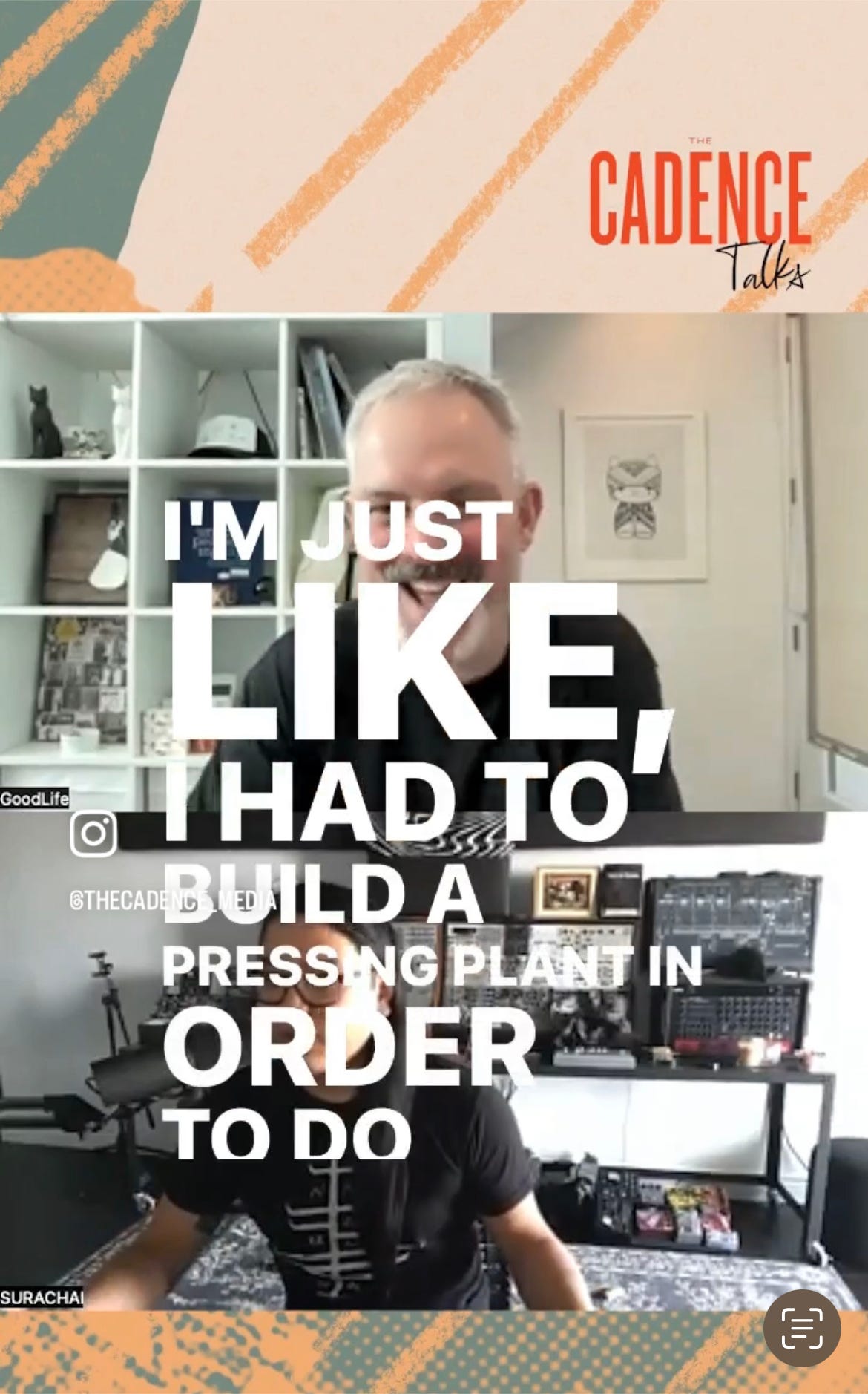Last week, we led with some killer hyperbole regarding how folks didn’t open their records even in the heyday of vinyl. This unchecked factoid was so juicy that it caused a few readers to cry foul, while the How Long Gone podcast (which has a much larger audience than this newsletter) repeated a version of the statement.
At this point, we thought the only thing to do was contact our source of this “fact,” Mat Dryhurst, to get more details. And being the diligent type of fellow that he is, Mat came back with his sources, a paper by Professor Lee Marshall, and even found the relevant section:
So the claim seems more right than wrong, though pretty much impossible to prove.
Of course, what made this information so quotable is that it seems plausible. And the “fact” that many vinyl owners in the 1970s and 80s didn’t listen to their vinyl dovetails nicely with the undisputed fact that 50% of U.S. vinyl buyers don’t own a record player.
Then there’s the fact that this just hit our inbox:
In case the font is too small, what you’re looking at is a 60-minute blank cassette collab between dusty (not a derivative) magazine Wax Poetics and French analog tape manufacturer RTM. But why?
Like vinyl, cassettes are staging a comeback for consumers who, like vinyl, presumably appreciate the analog quality (without actually listening to the analog medium).
Also, like vinyl, which has seen a resurgence in manufacturing capacity, the 20th-century process of making cassettes had to be rebooted. One such vendor, Steve Stepp from National Audio Company, stated that domestic tape manufacturing for audio cassettes ended as far back as 1984. But that didn’t keep the Springfield, MO entrepreneur from opening a facility to spool out 25 to 30 million cassettes a year.
Forget wondering how many of those cassettes will go unplayed.
How many will never even get recorded?
Will limited-edition blank cassettes be added to the list of intentionally pointless collectibles like Supreme toothpicks??
Can there even be ethical consumption under capitalism!?!?
Regardless, what is clear is that efforts to turn music fan dollars into sustainable businesses remain worth examining.
We would love to see more experiments, like the recently announced “artist-centric model” between Universal Music Group and Deezer, result in more streaming revenue ending up in the hands of those whose work contributes to the music-fan ecosystem in a meaningful way instead of just noise.
As for physical products in the age of digital abundance, we accept a degree of collectible consumption to keep fans happy and music professionals afloat. Maybe just try to avoid relying on selling unused(able) products to bolster the bottom line.
If you're interested in the argument for physical media, try checking out our conversation with the co-founders of Onyx Record Press.
The full hour-long conversation is available to our Premium Subscribers. There’s no better way to support The Cadence than by clicking the button below.
TAKEAWAYS
Salient statements from this week’s music news.
JP Morgan Says UMG's ‘Artist-Centric’ Model Will Bring a 9% Revenue Increase
The analyst increased the price target for UMG’s shares from EUR €31 to EUR €33 on the potential for its “artist-centric” deal with Deezer to become the norm with DSPs.
Takeaway: What’s also interesting to note is that Kerven at J.P. Morgan suggests that this ‘artist-centric’ payout model “reduces the risk of an exponentially growing AI tail”.
2. BandLab Adds Free Music Distribution
While major labels try to plug up the “noise” on DPSs, a new flood of user-generated tunes is approaching the dam.
Takeaway: Membership in BandLab costs $14.95 per month, but artists retain 100% of ownership and royalties in addition to free distribution.

3. Responsibility for AI Copyright Infringement Rests With Platforms
Warner Music Group CEO told a Goldman Sach’s Q&A session who he holds responsible for present or future AI infringement.
Takeaway: There are three key players in addressing this problem: government, with its ability to pass legislation; the “consumption platforms” where these tracks are distributed; and developers of generative AI engines.

4. Record Labels Won the Music Piracy Battle With Fans, But May Be Losing the War
A study shows that 55M people accessed unlicensed music in the past year — the same amount that illegally downloaded mp3s in 2003.
Takeaway: The problem is the consumer. The teenager who knew that they were committing piracy while downloading In Utero from Limewire is now an adult. Today, they can be easily confused.











